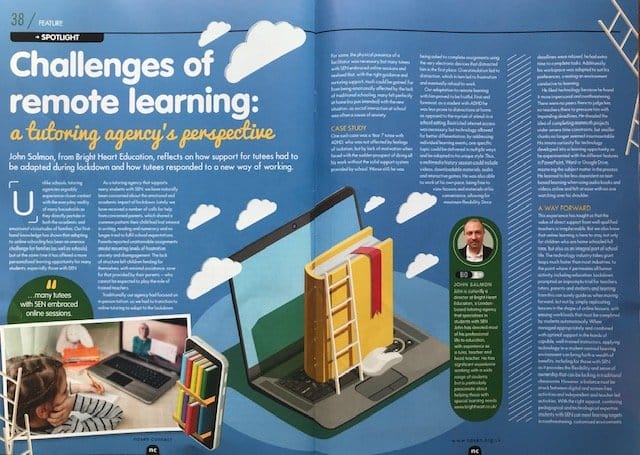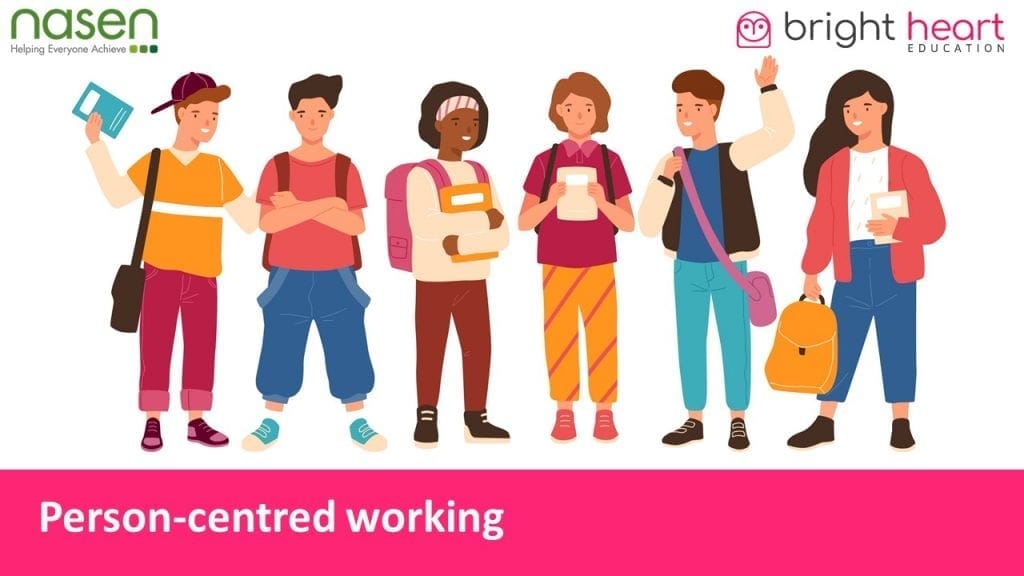
Our annual in-person workshop with nasen was very informative on the topics of SEMH needs and dyscalculia.
Nasen tutor workshop: SEMH and dyscalculia
Annually, Bright Heart and nasen run an in-person workshop providing further training for our tutors. This allows sharing of the latest in special educational needs (SEN), along with strategies and tips for providing effective tutoring. It is also a time for social interaction – often tutors are spending a significant time working 1:1 with young people and can have less engagement with their peers.
The workshop was presented by nasen Education Officer, Anna Speke. Anna is a former SENCo and brought her experience to bear. There were two key topics which were explored, along with refreshers on safeguarding provided by Designated Safeguarding Lead, John Salmon.
It was shared that 1 in 5 children are unhappy with their mental health and 95% of education professionals reported increasing levels of anxiety among their students. It was noted the importance of trust and relationship with children, which is also key to our approach at Bright Heart. One key aspect where children are often misunderstood is understanding their behaviour as communication of need.
What might learners be communicating? Some reasons may be below:
Working with children with anxiety was also covered. Keeping activities light without any pressure was key for this environment. Breaking the anxiety feedback loop was discussed and practical strategies for helping emotional regulation.

The second session examined the definition of dyscalculia, identifying it in children and what strategies are best. Sometimes people may consider this SEN as simply being poor at maths. A definition was provided by Anna as
”Dyscalculia is a condition that affects the ability to acquire mathematical skills. Dyscalculic learners may have a difficulty understanding simple number concepts, lack an intuitive grasp of numbers, and have problems learning number facts and procedures Even if they produce a correct answer or use a correct method, they may do so mechanically and without confidence.’’
Everyone with dyscalculia will have a unique combination of characteristics. We then discussed some tutoring strategies for this need.
Safeguarding refresher
Director John Salmon provided an SEMH case study to highlight safeguarding. In this study, the effects of vicarious trauma were also highlighted, which became an active discussion point for tutors.
The British Medical Association notes that vicarious trauma is
‘a process of change resulting from empathetic engagement with trauma survivors. Anyone who engages empathetically with survivors of traumatic incidents, torture, and material relating to their trauma, is potentially affected, including doctors and other health professionals.’
This is something for tutors to bear in mind for more complex cases, as well as to share with Bright Heart if this is something they may be experiencing.
Get in touch
We hope this blog was helpful. Please feel free to get in touch with us should you have any questions about support for your child. We enjoy talking with parents and helping our students by tailoring learning to their individual needs.
Share this article





























